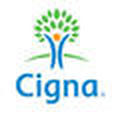+1 (415) 449 1988

Dr. Jayn strongly believes that therapy sessions should be extremely efficient and focused, and that clients should NOT be in therapy for years. In most cases, clients are able to discharge from therapy within just 12 to 24 concierge treatment sessions (only 3 to 6 months), especially if they’re experiencing a life transition problem.
Dr. Jayn's job is to quickly get to the bottom of your mental health issues. Her goal is to diagnose, treat, and eliminate your problems as efficiently as possible. With this approach, up to 95% of your therapy work can occur outside of the therapy office. Dr. Jayn will teach you the skills and tools to cope with—and to reduce or even prevent—your problems. When you have learned these skills and tools, Dr. Jayn will help you to practice them, experiment with them, and tailor them to your particular circumstances and preferences. This will allow you to quickly graduate from therapy sessions and address your problems on your own, without therapy!
Dr. Jayn's job is to quickly get to the bottom of your mental health issues. Her goal is to diagnose, treat, and eliminate your problems as efficiently as possible. With this approach, up to 95% of your therapy work can occur outside of the therapy office. Dr. Jayn will teach you the skills and tools to cope with—and to reduce or even prevent—your problems. When you have learned these skills and tools, Dr. Jayn will help you to practice them, experiment with them, and tailor them to your particular circumstances and preferences. This will allow you to quickly graduate from therapy sessions and address your problems on your own, without therapy!
Individuals
Therapy should not be an arduous process. It should be pleasant, quick, and filled with hopefulness. Dr. Jayn’s mission is to get her clients back out and enjoying the lives that they want to live. While the length of time that each client spends in therapy depends on several factors (the client’s schedule, the severity of his/her trauma, etc.), most clients will complete therapy within only 3 to 6 months. Then the client can use the skills and tools learned in therapy to enhance all aspects of his/her life, including relationships, work and other responsibilities, self-esteem/confidence, and overall outlook on life.
Therapy should not be an arduous process. It should be pleasant, quick, and filled with hopefulness. Dr. Jayn’s mission is to get her clients back out and enjoying the lives that they want to live. While the length of time that each client spends in therapy depends on several factors (the client’s schedule, the severity of his/her trauma, etc.), most clients will complete therapy within only 3 to 6 months. Then the client can use the skills and tools learned in therapy to enhance all aspects of his/her life, including relationships, work and other responsibilities, self-esteem/confidence, and overall outlook on life.
Show me a woman who can sit with her partner, as he/she exhibits his/her real fear, shame, and vulnerability;
if she can just be with him/her, she is a woman who has done her personal work.
She does not derive status, and power, from the other person.
if she can just be with him/her, she is a woman who has done her personal work.
She does not derive status, and power, from the other person.
Couples
For couples therapy, Dr. Jayn utilizes a proactive and streamlined approach. Rather than focusing on the couple’s problems, couples will focus on the positive aspects of their relationship, and learn how to use those positive aspects to resolve past and present problems, and to avoid future ones. Dr. Jayn’s progressive yet simple approach to couples therapy involves 4 assessments (namely, Gottman Couples Assessment, Love Languages Assessment, Locus of Control Assessment, and Attachment Styles Assessment), followed by a 3-phase treatment program. Dr. Jayn uses the most successful and reliable treatment modalities in couples sessions, including Gottman, Emotionally Focused Therapy (EFT), Cognitive Behavioral Therapy (CBT), Solution Focused, Narrative, and Gestalt.
In phase 1 of our couples treatment, our clients agree to avoid talking about the past and instead focus on simple and immediate changes that can help them. By adhering to those changes on a daily basis, you and your partner will be able to rewire your negative communication patterns and start to rewrite your story together.
In phase 2, couples learn new tools and skills through enlightening and fun role-playing activities.
In phase 3, couples use their newly-acquired communication and relationship skills and tools to finally unpack their past. This is done in a healthy and constructive way, so that the underlying issues can be resolved and used as a positive source of learning and growth.
For reference, please watch this video on the distress a person experiences, in their relationship with a loved one, and the explanations behind it:
For couples therapy, Dr. Jayn utilizes a proactive and streamlined approach. Rather than focusing on the couple’s problems, couples will focus on the positive aspects of their relationship, and learn how to use those positive aspects to resolve past and present problems, and to avoid future ones. Dr. Jayn’s progressive yet simple approach to couples therapy involves 4 assessments (namely, Gottman Couples Assessment, Love Languages Assessment, Locus of Control Assessment, and Attachment Styles Assessment), followed by a 3-phase treatment program. Dr. Jayn uses the most successful and reliable treatment modalities in couples sessions, including Gottman, Emotionally Focused Therapy (EFT), Cognitive Behavioral Therapy (CBT), Solution Focused, Narrative, and Gestalt.
In phase 1 of our couples treatment, our clients agree to avoid talking about the past and instead focus on simple and immediate changes that can help them. By adhering to those changes on a daily basis, you and your partner will be able to rewire your negative communication patterns and start to rewrite your story together.
In phase 2, couples learn new tools and skills through enlightening and fun role-playing activities.
In phase 3, couples use their newly-acquired communication and relationship skills and tools to finally unpack their past. This is done in a healthy and constructive way, so that the underlying issues can be resolved and used as a positive source of learning and growth.
For reference, please watch this video on the distress a person experiences, in their relationship with a loved one, and the explanations behind it:
Show me a man who can sit, just listen, and does not try to fix anything, as his partner expresses their real fears, shame, and vulnerability. T
hat is a man who has done his work.
He does not derive his power from being Mr. Fix-It.
hat is a man who has done his work.
He does not derive his power from being Mr. Fix-It.
Children and Teenagers
Therapy sessions for children and teens involve a very unique set of factors and tendencies. For example, one of the core symptoms of mental health problems in children and teens is anger. However, a symptom such as anger is often a “secondary emotion” that children use subconsciously to protect themselves from feeling vulnerable. This explains why a child’s family and friends are often very confused as to why a child is showing certain emotions and behaviors. The main goal in therapy sessions with children is to identify and treat the “primary feeling” that the child is covering up with secondary feelings such as anger. In many cases, the primary feeling is depression or anxiety. Therefore, it’s not surprising that a child’s loved ones are often focusing on addressing the obvious symptoms (the secondary feelings) rather than the underlying problem (the primary feelings). Dr. Jayn’s treatment of children and teens is done in collaboration with their family members so that everyone is involved in—and invested in—the treatment’s success.
Teen Groups
In addition to individual therapy and family therapy, many children and teens have benefitted from group therapy, which occurs weekly. Group therapy shows children and teens that they are not the only ones who are experiencing problems, and that some of their peers are actually experiencing their same problem.
Therapy sessions for children and teens involve a very unique set of factors and tendencies. For example, one of the core symptoms of mental health problems in children and teens is anger. However, a symptom such as anger is often a “secondary emotion” that children use subconsciously to protect themselves from feeling vulnerable. This explains why a child’s family and friends are often very confused as to why a child is showing certain emotions and behaviors. The main goal in therapy sessions with children is to identify and treat the “primary feeling” that the child is covering up with secondary feelings such as anger. In many cases, the primary feeling is depression or anxiety. Therefore, it’s not surprising that a child’s loved ones are often focusing on addressing the obvious symptoms (the secondary feelings) rather than the underlying problem (the primary feelings). Dr. Jayn’s treatment of children and teens is done in collaboration with their family members so that everyone is involved in—and invested in—the treatment’s success.
Teen Groups
In addition to individual therapy and family therapy, many children and teens have benefitted from group therapy, which occurs weekly. Group therapy shows children and teens that they are not the only ones who are experiencing problems, and that some of their peers are actually experiencing their same problem.
Anxiety and depression
Anxiety and depression are known as “comorbid disorders;” they tend to come together. In fact, anxiety and depression often cause one another and feed one another. Like the chicken and the egg, it usually doesn't matter which one came first.
While anxiety or depression can have many underlying causes (some physiological and some mental/emotional), Dr. Jayn has seen that the core cause is often some sort of “cognitive dissonance,” or internal conflict. For example, anxiety or depression is often a symptom of a person’s feeling that s/he is either doing something that s/he is not supposed to do, or not doing something that s/he is supposed to do. When your actions aren’t aligning with your expectations for yourself, it can feel as if your internal thermostat is malfunctioning.
Anxiety and depression are known as “comorbid disorders;” they tend to come together. In fact, anxiety and depression often cause one another and feed one another. Like the chicken and the egg, it usually doesn't matter which one came first.
While anxiety or depression can have many underlying causes (some physiological and some mental/emotional), Dr. Jayn has seen that the core cause is often some sort of “cognitive dissonance,” or internal conflict. For example, anxiety or depression is often a symptom of a person’s feeling that s/he is either doing something that s/he is not supposed to do, or not doing something that s/he is supposed to do. When your actions aren’t aligning with your expectations for yourself, it can feel as if your internal thermostat is malfunctioning.
Trauma, child sexual abuse, loss, grief and phobias - This is one of Dr. Jayn’s areas of specialty. She uses a revolutionary treatment method known as EMDR (Eye Movement Desensitization and Reprocessing) to treat clients’ traumatic memories. EMDR allows you to tackle and shift the negative thoughts attached to your traumatic memories, so that your body no longer generates an emotional response (such as anxiety or depression) to those thoughts. Dr. Jayn uses EMDR to train your brain to process traumatic memories in its hippocampus region, rather than in its amygdala, which is the part of your brain that triggers the extreme emotional responses of “fight, flight, and freezing.” By training your brain to more effectively process your trauma, your central nervous system will react with less emotional intensity.
Trauma, child sexual abuse, loss, grief and phobias - This is one of Dr. Jayn’s areas of specialty. She uses a revolutionary treatment method known as EMDR (Eye Movement Desensitization and Reprocessing) to treat clients’ traumatic memories. EMDR allows you to tackle and shift the negative thoughts attached to your traumatic memories, so that your body no longer generates an emotional response (such as anxiety or depression) to those thoughts. Dr. Jayn uses EMDR to train your brain to process traumatic memories in its hippocampus region, rather than in its amygdala, which is the part of your brain that triggers the extreme emotional responses of “fight, flight, and freezing.” By training your brain to more effectively process your trauma, your central nervous system will react with less emotional intensity.
Safe space / brainstorming - Some clients seek therapy not because they necessarily have a major problem that they need to work on, but because they like the idea of going to a safe and neutral place on a regular basis to de-stress, unload, or vent about things in their life. In sharing their thoughts and feelings with a therapist, they can hear themselves out loud, brainstorm ideas, and get feedback from a neutral person. Several clients have reported that this proactive approach helps them to greatly reduce mental and emotional distress by allowing them to relieve their built-up stress and to work on different strategies and skills to use in dealing with their current or anticipated problems in life.
Pre-marital assessment and counseling
These days, it is common for engaged couples to participate in pre-marital therapy, which ideally starts approximately 12 months before the wedding date. In just a single pre-marital counseling session, Dr. Jayn provides a clinical assessment and a detailed report (60-80 pages) on the couple’s union. With this information, Dr. Jayn can inform the couple about the issues that their relationship specifically might face, and teach the couple how to address those issues. The counseling session covers the couple’s strengths, weaknesses, and tools and skills that they can use to address areas of concern. Clients have reported to Dr. Jayn that their pre-marital counseling session was extremely beneficial in dealing with a wide range of challenges that they faced as newlyweds, including: differences in personality types, politics, religion/spirituality, finances, work issues, domestic chores and responsibilities, health issues (physical and mental), sex/intimacy, parenting styles and roles, and relationships with their extended families. The goal of the pre-marital counseling session is to ensure that each person is certain that s/he truly wants—and is prepared—to spend the rest of his/her life with the other.
Pre-marital assessment and counseling
These days, it is common for engaged couples to participate in pre-marital therapy, which ideally starts approximately 12 months before the wedding date. In just a single pre-marital counseling session, Dr. Jayn provides a clinical assessment and a detailed report (60-80 pages) on the couple’s union. With this information, Dr. Jayn can inform the couple about the issues that their relationship specifically might face, and teach the couple how to address those issues. The counseling session covers the couple’s strengths, weaknesses, and tools and skills that they can use to address areas of concern. Clients have reported to Dr. Jayn that their pre-marital counseling session was extremely beneficial in dealing with a wide range of challenges that they faced as newlyweds, including: differences in personality types, politics, religion/spirituality, finances, work issues, domestic chores and responsibilities, health issues (physical and mental), sex/intimacy, parenting styles and roles, and relationships with their extended families. The goal of the pre-marital counseling session is to ensure that each person is certain that s/he truly wants—and is prepared—to spend the rest of his/her life with the other.
Wedding Officiant (now available to non-clients)
Until recently, Dr. Jayn had served as a Wedding Officiant only to her clients, since she takes her officiant responsibilities very seriously and makes them very personal and special for each couple. However, due to numerous heartfelt requests to officiate the weddings of people who have been referred by her clients, Dr. Jayn is now extending her wedding officiant services to non-clients. If you are interested, please email for details.
Cultural, racial, religious, spirituality, diversity, LGBTQA
If therapy sessions need to encompass any of these components, please let Dr. Jayn know. Being a woman of color, an immigrant, and a minority, Dr. Jayn is able to work with those who identify with any of these groups. Coming from the multicultural and multireligious country of Malaysia, Dr. Jayn grew up with a deep knowledge of the faiths of Christianity, Hinduism, Buddhism, Islam, Sikhism, and Jainism. Through living, studying, and working all over the world (Europe, Middle East, Asia, and North America), she has a very strong appreciation for all cultures and the unique challenges that they face.
Christian therapy – Christian and orthodox-based therapy modalities are available to those who require it. Please let Dr. Jayn know if you need this to be part of your treatment.
Reduced rates
DrJayn.Com is also a teaching clinic, which allows us to offer reduced rates. If Dr. Jayn’s rates are a little too steep for you, or you do not have insurance, please consider working with one of her interns. Interns are usually either in their final year of graduate school or already preparing to sit for their Board exams. Since interns are still in training and have not yet been licensed by the Board of Behavioral Sciences, their rates are significantly lower than Jayn’s own rates. Interns are supervised by Jayn and are working under her license, until they pass their Board exams and move on to their own practice. When that happens, clients can continue to work with their newly-licensed therapist in his/her new practice.
DrJayn.Com is also a teaching clinic, which allows us to offer reduced rates. If Dr. Jayn’s rates are a little too steep for you, or you do not have insurance, please consider working with one of her interns. Interns are usually either in their final year of graduate school or already preparing to sit for their Board exams. Since interns are still in training and have not yet been licensed by the Board of Behavioral Sciences, their rates are significantly lower than Jayn’s own rates. Interns are supervised by Jayn and are working under her license, until they pass their Board exams and move on to their own practice. When that happens, clients can continue to work with their newly-licensed therapist in his/her new practice.
In-network provider for;
Out of network provider for;
2007 - 20212created and maintained by Dr. Jayn Rajandran Psy.D., LMFT 50666. Last updated in March 2022
















